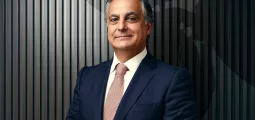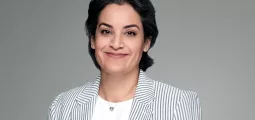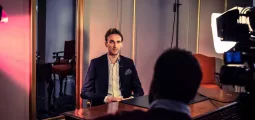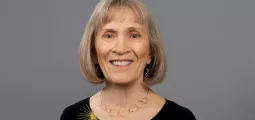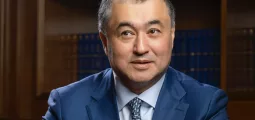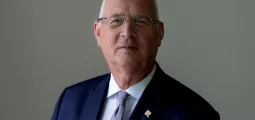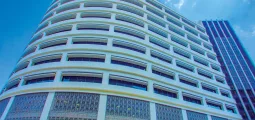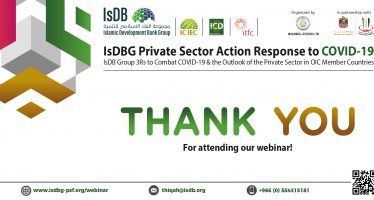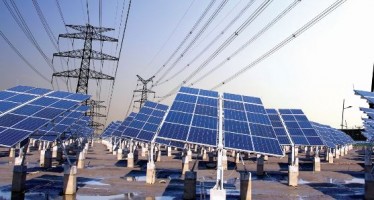Grant Thornton UAE: A Defining Period for UAE Capital Markets
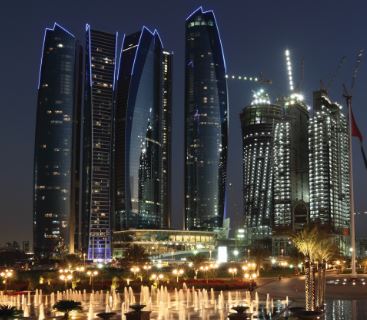
Abu Dhabi
The economy of the United Arab Emirates (UAE) is set to grow at a significant pace in 2014 due to an overall positive outlook. With investor confidence building momentum, sustainable growth seems assured. The UAE is particularly noted for possessing the dynamism of the West whilst maintaining the culture of the East.
For 2014, the IMF has predicted a GDP growth rate of 4.5%. This is supported by Abu Dhabi’s buoyant oil and gas industry and its significant infrastructure and industrial investment. It is also spurred on by Dubai’s rebounding economy fuelled, in part, by the country’s recent Expo 2020 win.
Equity Capital Markets
In June 2013, the UAE’s classification was upgraded from frontier market to emerging market. As a result, in May 2014, the three UAE indices – the Abu Dhabi Securities Exchange (ADX), the Dubai Financial Market (DFM) and Nasdaq Dubai – are now expected to be incorporated into the MSCI’s (Morgan Stanley Capital International) emerging markets index. Commentators widely expect this development to attract over $270 million to those exchanges.
The performance of the UAE stock exchanges in the past year is notable. The ADX ended 2013 with a total of almost $23 billion in share value and a year-on-year growth in volume of 282%. The socio-political turmoil affecting the wider region is seen to be driving trading volumes with investors seeking a safe haven. This is positively affecting real estate and stock values in the UAE. Moreover, the index opened at 2,631 in 2013, and closed 63% higher at 4,290.
In 2013, the DFM was the second-best performing exchange globally. In January 2014, it achieved a new five-year high at 3,819 points, equalling its January 2008 peak.
Initial Public Offerings (IPOs)
A strong pipeline of issuers looking to launch IPOs regionally is expected to materialise over the next 18 months. Grant Thornton (GT) provides IPO readiness assessments and acts as a sponsor to companies seeking to list. GT expects to see several UAE local family groups evaluating listing opportunities in an effort to obtain capital injections and to raise their regional profile.
A well-known Abu Dhabi bank expects six companies to go public in 2014. This is estimated to raise $2 billion. In 2013, the only sizable local IPO was that of Damac Properties. However, its management opted to list on the London Stock Exchange. The company was valued at $2.65 billion post offering.
The last significant IPO valued at over $1 billion was 15 times oversubscribed and concerned port operator DP World Ltd which raised $4.96 billion in November 2007. After a seven year retreat, it is now widely anticipated that there will be a return to this kind of more robust IPO activity.
Bourse Consolidation and Regulation
The UAE’s stock market regulator, the Securities and Commodities Authority, continues to improve and implement higher standards of regulation since its inception in 2002. The regulator thus aims to ensure investor confidence without hindering local capital market activity.
According to Bloomberg, Abu Dhabi and Dubai have already completed due diligence on a possible merger of the ADX and DFM exchanges. This will ensure a more efficient and coordinated approach to the global investor community.
Also, there is motivation from UAE listed companies to lift foreign ownership limits on their shares. Under current UAE rules, investors from outside the UAE or GCC (Gulf Cooperation Council) are permitted to buy up to 49% of the shares of any listed company. In order to attract further equity from the international investment community, including large financial institutions, an end to these limits on foreign ownership is being suggested. The trend to increase limits is noticeable. In the last quarter of 2013, two major banks and a real estate developer listed on the UAE exchanges approved an increase of foreign ownership limits to between 20-25% of their share capital.
Debt Capital Markets
New bond rules are expected to give further stimulus to UAE debt securities in 2014. According to the International Financing Review, a Thomson Reuters unit, bond issuance from the region is expected to flourish because of significant infrastructure investment and refinancing.
The UAE, which has the largest portfolio of outstanding debt securities in the GCC, has issued new rules for the issuance and trading of covered bonds (bonds which have a preferential claim on the assets in the event of a default). This is a welcomed initiative for the development of the UAE’s debt market, and will allow for a new source of funding for commercial banks.
Islamic Financial Markets (Sukuks)
In line with the initiative of His Highness Sheikh Mohammad Bin Rashid Al Maktoum, Dubai is leading the way to become a global hub for Islamic finance with the aim to drive Islamic banking and capital market activity in both the UAE and the wider region.
So far in 2014, Emaar Properties has dual listed a $500 million sukuk, issued in 2011 on Nasdaq Dubai, providing further momentum to the country’s resolve to become a global sukuk centre. Furthermore, UAE based GEMS Education celebrated the listing of a $200 million sukuk on Nasdaq Dubai.
Defining Period for UAE Capital Markets
The next two years are set to be a defining period for UAE capital markets, with expectations of increased regional and international investment into the region; growth in both debt and equity security valuations; increased trading volumes, and a return to a more frequent and successful IPO listings period. Undoubtedly investors are now becoming more confident to deploy the cash sitting on the side lines into the UAE markets with expectations of robust medium and long term returns.
About the Author
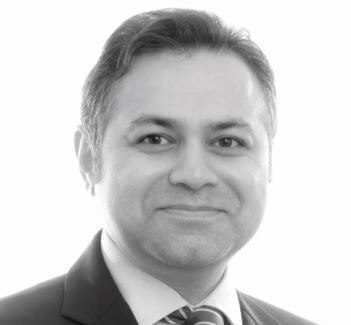
Author: Simi Nehra
Simi Nehra is the Corporate Finance Partner at Grant Thornton UAE. Mr Nehra has over 15 years’ experience in financial advisory services, including expertise in corporate finance, due diligence, business valuations, mergers and acquisitions and debt advisory. Mr Nehra has led several advisory mandates in the Middle East and North Africa region spanning a variety of industries. He has also provided transaction support to high profile IPOs on the UAE financial markets and advisory services to UAE government entities.
Mr Nehra is a chartered accountant and a corporate finance designate from the Institute of Chartered Accountants England and Wales. He also holds a BA from the Manchester School of Accounting and Finance. Mr Nehra practiced alongside leading professionals in London before relocating to the UAE.
About Grant Thornton
Grant Thornton is one of the world’s leading organisations of independent assurance, tax and advisory firms. These firms help dynamic organisations unlock their potential for growth by providing meaningful, forward looking advice. Proactive teams led by approachable partners in these firms use insights, experience and instinct to understand complex issues for privately owned, publicly listed and public sector clients and help them find solutions. More than 35,000 Grant Thornton people, in over 100 countries, are focused on making a difference to clients, colleagues and the communities in which they live and work.

“Grant Thornton” refers to the brand under which the Grant Thornton member firms provide assurance, tax and advisory services to their clients and/or refers to one or more member firms, as the context requires.
Grant Thornton International Ltd (GTIL) and the member firms are not a worldwide partnership. GTIL and each member firm forms a separate legal entity. Services are delivered by the member firms. GTIL does not provide services to clients. GTIL and its member firms are not agents of, and do not obligate one another and are not liable for one another’s acts or omissions.
You may have an interest in also reading…
IFC – International Finance Corporation: Eliminating Poverty, One Loan at a Time
The famed Peruvian economist Hernando de Soto has said it all along: The world’s destitute are oftentimes somewhat less poor
Islamic Development Bank Deploys Sukuk to Counter Corona Impact
Respond, Restore, and Restart. That is how the Islamic Development Bank Group (IsDB) aims to tackle the economic fallout of
Science-Based Emissions Targets: A New Foundation for Corporate Climate Action
Corporate emissions-reduction targets have become commonplace. In 2014, 80% of companies that reported their emissions to CDP, an international NGO

